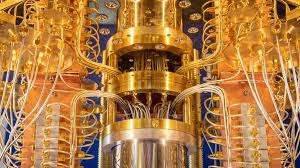Artificial Intelligence (AI) refers to the simulation of human intelligence in machines that are programmed to think, learn, and make decisions. AI technologies enable machines to perform tasks that typically require human intelligence. Here are the key components and types of AI:
Key Components of AI:
Machine Learning (ML):
- A subset of AI that involves training algorithms to learn from and make predictions or decisions based on data. It includes supervised, unsupervised, and reinforcement learning.
Natural Language Processing (NLP):
- The ability of machines to understand, interpret, and respond to human language. NLP is used in applications like chatbots, language translation, and sentiment analysis.
Computer Vision:
- The capability of machines to interpret and understand visual information from the world, enabling applications like image and video recognition, facial recognition, and autonomous vehicles.
Robotics:
- The design and creation of robots that can perform tasks in the physical world, often utilizing AI for navigation, manipulation, and interaction with humans.
Types of AI:
Narrow AI (Weak AI):
- AI systems designed to perform a specific task or a narrow range of tasks. Examples include voice assistants like Siri and Alexa, and recommendation algorithms used by streaming services.
General AI (Strong AI):
- Hypothetical AI systems that possess the ability to perform any intellectual task that a human can do. This type of AI remains a goal for future development and does not yet exist.
Super intelligent AI:
- A theoretical form of AI that surpasses human intelligence across all fields. This is a concept often explored in science fiction and is not currently attainable.
Applications of AI:
- Healthcare: AI is used for diagnosing diseases, personalized treatment plans, and drug discovery.
- Finance: AI algorithms are applied in fraud detection, risk assessment, and automated trading.
- Customer Service: AI-powered chatbots and virtual assistants provide instant support and improve customer experience.
- Manufacturing: AI enhances predictive maintenance, quality control, and process optimization.
- Transportation: Autonomous vehicles and traffic management systems rely on AI for navigation and safety.
Benefits of AI:
- Efficiency: Automates repetitive tasks, allowing humans to focus on more complex activities.
- Accuracy: Reduces human error in various applications, leading to more reliable outcomes.
- Innovation: Drives new products and services, fostering growth and development across industries.
Challenges of AI:
- Ethical Concerns: Issues related to privacy, bias, and decision-making transparency.
- Job Displacement: Potential impact on employment as automation increases.
- Security Risks: Vulnerability to cyberattacks and misuse of AI technology.












good
ReplyDeleteSEO Optimization: AI Courses & Training at Eduarn
DeletePage Focus: Instructor-led Artificial Intelligence (AI) training programs covering Python, Data Science, Machine Learning, and Deployment tools.
Eduarn offers hands-on, real-world AI courses designed for professionals, teams, and individual learners. Our curriculum includes foundational AI concepts, advanced ML techniques, AI model deployment using open-source tools, and domain-specific applications.
Key Features:
- 1:1 and group online training with expert instructors
- Real projects: AI spam detection, recommender systems, and predictive analytics
- Python, PyTorch, TensorFlow, and Scikit-learn coverage
- Designed for data analysts, developers, and cloud engineers
- Updated for 2025 AI industry standards and job-ready skills
Target Keywords:
ai training, machine learning course 2025, python for ai, data science bootcamp, ai instructor-led training, ai online classes, ai model deployment
Eduarn is your destination for scalable, affordable AI education tailored for both beginners and working professionals.
Call to Action:
Explore AI courses now at AI
Wonderful 💯💯💯
ReplyDelete👌
ReplyDelete